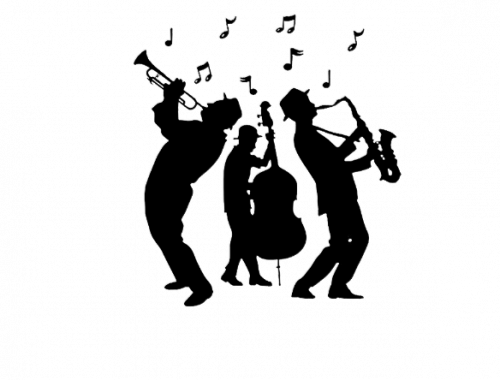Work hard, play hard?
You know the old saying “work hard, play hard”? I’m starting to feel like it should be changed to “work hard, work harder”. Don’t get me wrong, throughout my placement I have encountered a lot of new and exciting prospects within the industry. But, throughout my placement, I struggled with balancing my workload with other things going on in my life such as university assignments as well as socialising with my friends.
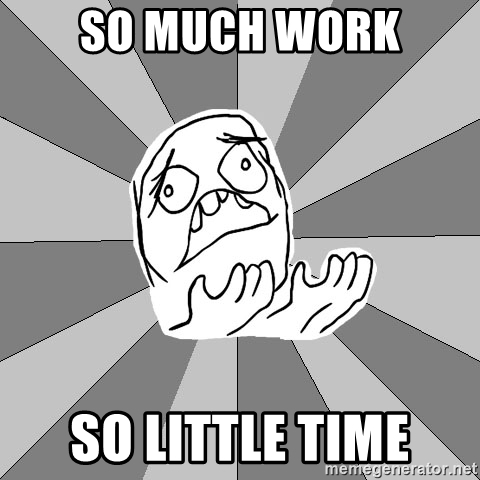
This is one of the main challenges that I faced during my placement. In order to reflect on this, I am going to engage with Gibbs’ Reflective Cycle as it “encourages a clear description, analysis of a situation, and examines what would do should the situation happen again. (Jasper, 2013)”. I have also noticed that through using this cycle in both of my previous blog posts, it has helped me to navigate my placement with a new perspective and allowed me to be open to the opportunities I have been presented with. Therefore, I feel it would be appropriate to apply it one final time.
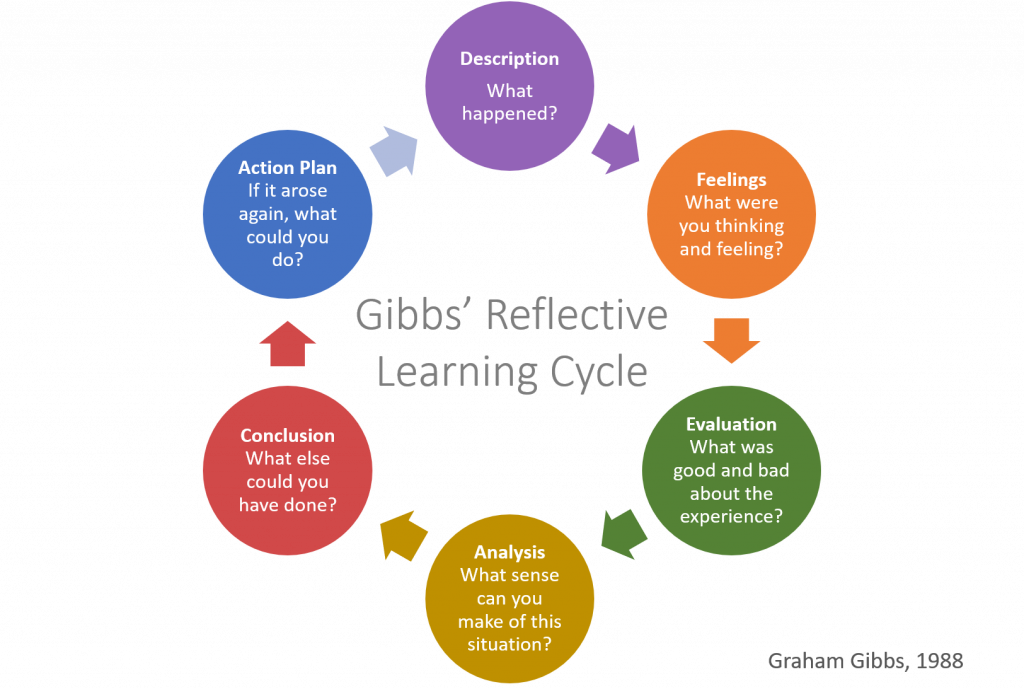
Description:
For this module, each student had to complete 100 hours of work within the year for their placement. I had my 100 hours finished by the end of September. Because I secured my placement before the start of the school year, I had a lot of free time at the beginning of September to get all of my hours done and out of the way. However, although I had completed what was required for the module, my placement was happy to keep me on and so I have been doing work for them ever since. This is where the challenge arose. While I know that keeping the placement on was definitely the right decision as it gave me so much great experience and secured me three broadcasting credits, it made my work/university balance tricky later in the year.
Feelings:
At the beginning of the school year, I was feeling unstoppable. I was able to balance the two together very easily as I had less assignments due and more free time to focus on the productions at my placement. The productions were going well, and I was being commended for the work I was doing, which felt great. However, as the year progressed and my modules became more intense, I felt the quality of my work began slipping on both sides. “If you are given too much to do and too many demands are made on your time, the unfortunate result is that you will not be able to produce your best work” (Fanthome, 2004). This was disappointing because I really wanted to give both my all but ultimately, I ended up asking my placement for a break so that I could fully dedicate the rest of my time this year to my studies. I was nervous to ask for this because I felt I would be letting them down, but they were very understanding and encouraging. But to me, this was failure.
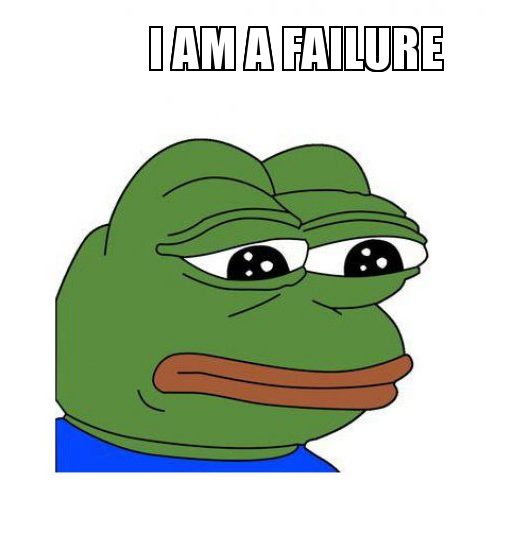
Evaluation:
I think what was bad about this situation was that I wasn’t able to find a good balance between my work placement and other commitments I had which ultimately led to me having to give up my placement. It was unfortunate that it had to come down to that as I had really been enjoying the work I was doing on their productions. On the other hand, I think this challenge led to a positive learning experience. I was able to learn my limit for workloads which will help me to balance them correctly in the future. This means that I will know exactly what I can take on before committing to anything.
Analysis:
I think what this really comes down to is my time management skills. Obviously, there is only so much one person can do in a day, which is understandable, but with the right priorities and focus, I think I could have kept the placement on for longer, or maybe even the whole way through to the end of the year.
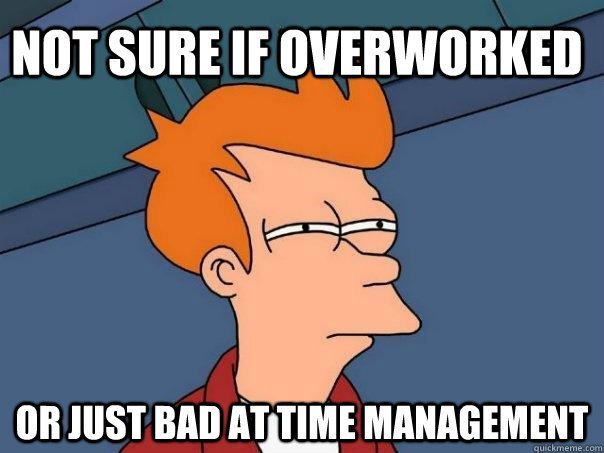
However, my university studies are a lot more important than the placement. I had already completed what was necessary for this module, with the rest just being a brucie bonus. All of this put me into quite a split mindset and the decision did take a while to make, but looking back I know that I made the right decision.
Conclusion:
Upon reflection, there are definitely a few things I could have done differently that would have made this a lot less challenging that it needed to be. To start with, I could have organised my time better between my placement and my studies. Instead of focusing on them one at a time, leaving me in a rush when it came to the latter, I could have harmonised the workflow and made it a lot more efficient. Alongside this, I could have laid out the amount of work I could take on at my placement more clearly. I was a fairly hesitant to say no to certain pieces of work because I wanted the bosses to like me, and I also thought about my how it would affect future rather than focusing on what was achievable in the present.
Action Plan:
Going forward for the rest of the year, I think I need to work on my time management with the rest of my assignments and bring that practise into the working world with me. I also need to be confident to speak up for myself whenever I feel like I have too much on my plate. Yes, I know that in the workplace you rarely get to decide how much work you can take on, but I feel like being vocal could maybe lift some of the pressure off.
References:
Fig.1 – https://helendenheld.com/tag/gibbs-reflective-learning-cycle/
Jasper, M. (2013) Beginning reflective practice. Andover: Cengage Learning EMEA.
Fanthome, C. (2004) Placements: A Survival Guide for Students. Basingstoke: Palgrave Macmillan.
3rd Blog post
You May Also Like
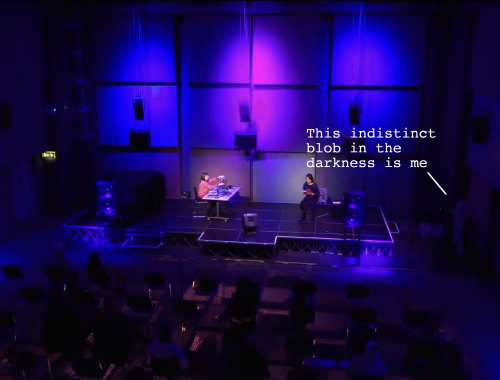
Teamwork Makes the Stream Work
27 March 2022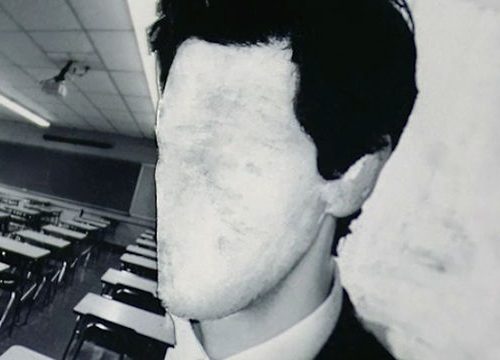
The Equity Of Detachment
25 March 2022